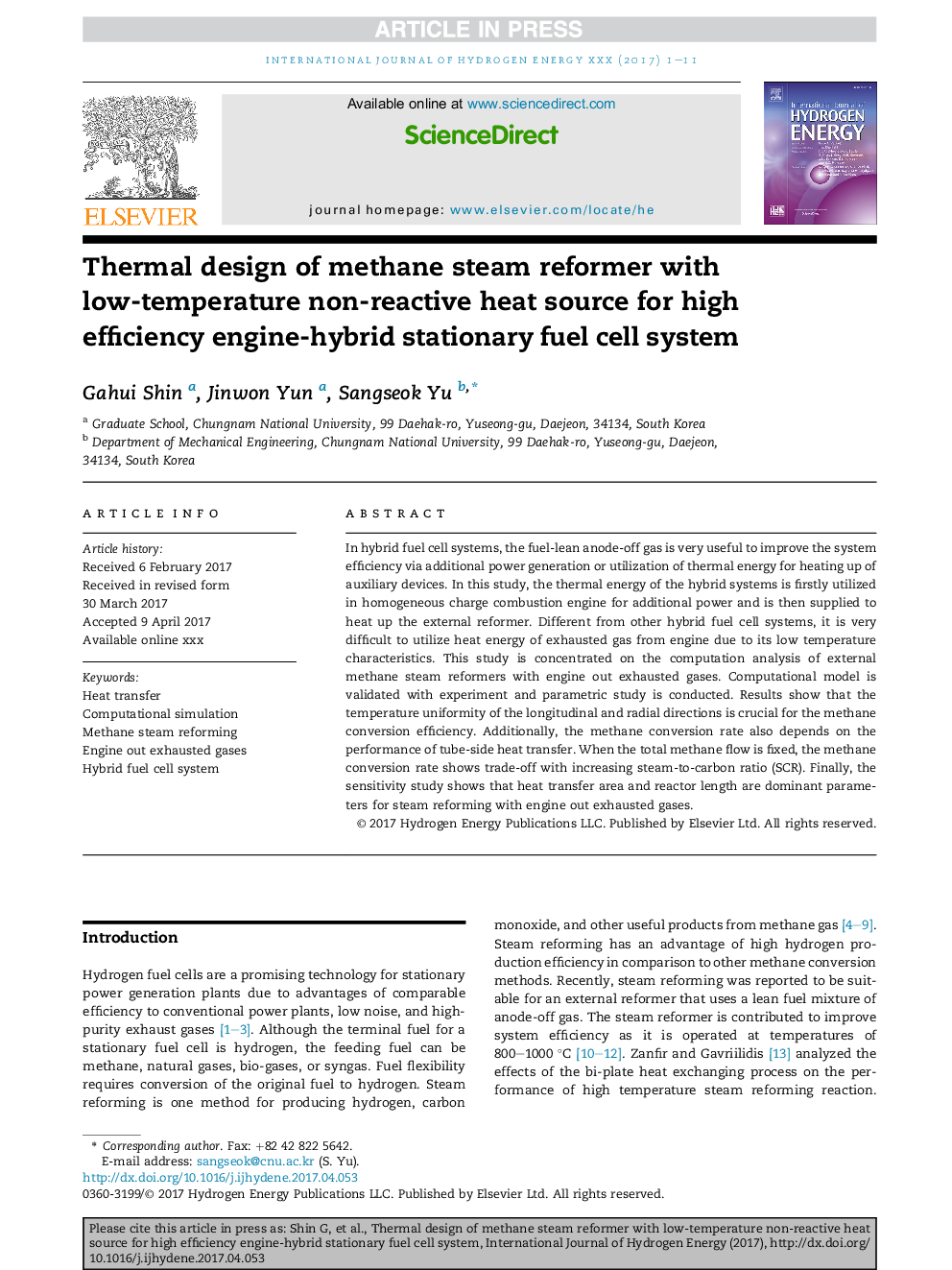| Article ID | Journal | Published Year | Pages | File Type |
|---|---|---|---|---|
| 5145600 | International Journal of Hydrogen Energy | 2017 | 11 Pages |
Abstract
In hybrid fuel cell systems, the fuel-lean anode-off gas is very useful to improve the system efficiency via additional power generation or utilization of thermal energy for heating up of auxiliary devices. In this study, the thermal energy of the hybrid systems is firstly utilized in homogeneous charge combustion engine for additional power and is then supplied to heat up the external reformer. Different from other hybrid fuel cell systems, it is very difficult to utilize heat energy of exhausted gas from engine due to its low temperature characteristics. This study is concentrated on the computation analysis of external methane steam reformers with engine out exhausted gases. Computational model is validated with experiment and parametric study is conducted. Results show that the temperature uniformity of the longitudinal and radial directions is crucial for the methane conversion efficiency. Additionally, the methane conversion rate also depends on the performance of tube-side heat transfer. When the total methane flow is fixed, the methane conversion rate shows trade-off with increasing steam-to-carbon ratio (SCR). Finally, the sensitivity study shows that heat transfer area and reactor length are dominant parameters for steam reforming with engine out exhausted gases.
Related Topics
Physical Sciences and Engineering
Chemistry
Electrochemistry
Authors
Gahui Shin, Jinwon Yun, Sangseok Yu,
